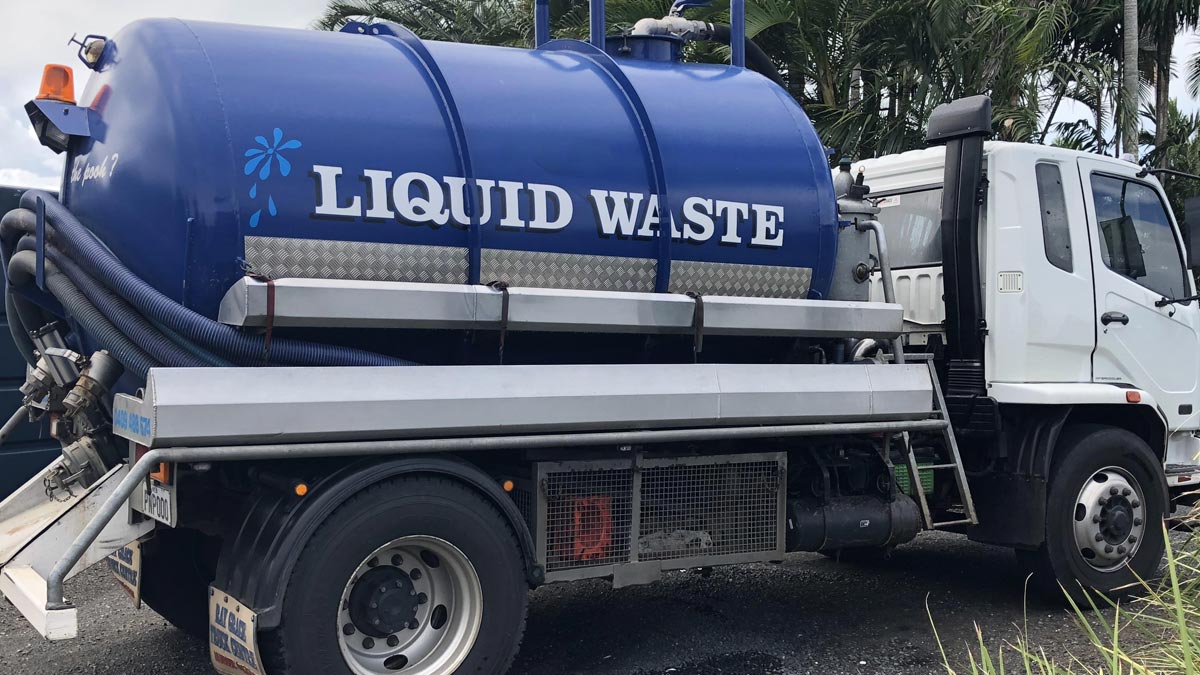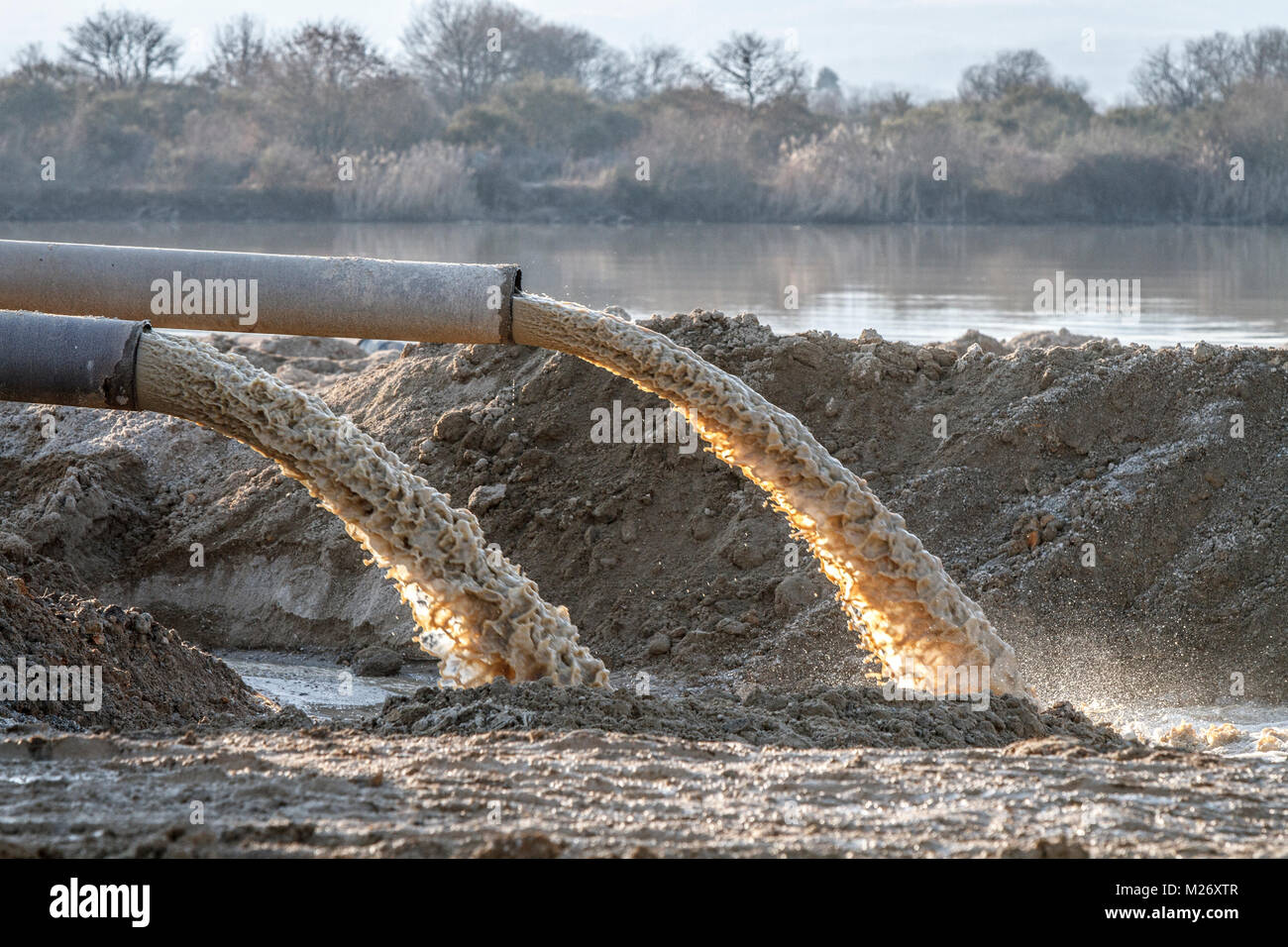Top Liquid Waste Disposal Melbourne: Trusted Services for Proper Waste Management
Wiki Article
Recognizing the Comprehensive Refine of Liquid Waste Disposal: Best Practices and Environmental Impact Considerations
The management of fluid waste disposal is a multifaceted issue that requires a comprehensive understanding of various finest methods and their associated ecological impacts. From the kinds of liquid waste created to the methods used for collection, therapy, and final disposal, each step plays a critical duty in safeguarding ecosystems and public health.Sorts Of Liquid Waste
Comprehending the various kinds of fluid waste is vital for efficient management and disposal methods. Fluid waste can be broadly categorized into numerous types, each requiring special handling and treatment techniques.Industrial fluid waste typically consists of dangerous products, consisting of hefty metals, solvents, and chemicals, created throughout manufacturing processes. These wastes require rigorous regulatory compliance to secure human wellness and the environment. Domestic liquid waste mostly describes wastewater generated from families, including sewage and greywater, which, although much less toxic, can still pose substantial risks if incorrectly handled.
Agricultural fluid waste, consisting of overflow from farms, often includes plant foods and pesticides that can bring about environmental degradation if not treated properly. Medical liquid waste, generated from health care facilities, includes contaminated liquids such as bodily fluids and chemicals, requiring specialized disposal methods to stop infection and ecological contamination.
Finally, oil and oil waste, usually generated by restaurants and automotive markets, can trigger severe obstructions in sewer systems if not managed correctly. Comprehending these groups helps with targeted strategies for therapy, conformity with laws, and reliable disposal approaches, eventually promoting environmental sustainability and public health safety.

Collection Techniques
Effective collection approaches are important for the appropriate management of fluid waste, making sure that it is collected securely and efficiently prior to treatment or disposal. Numerous strategies are used depending on the kind of liquid waste produced, the volume, and the details attributes of the waste.One common technique is making use of devoted collection tanks or sumps, which are created to record fluid waste at the source. These systems commonly incorporate pumps that assist in the transfer of waste to bigger storage space containers or therapy facilities. Furthermore, mobile collection systems geared up with vacuum cleaner technology are utilized in scenarios where waste is created periodically or in hard-to-reach areas.
For industrial settings, closed-loop systems can effectively reduce leakages and spills, permitting the healing and reuse of liquid waste. It is likewise important to educate personnel on appropriate collection methods to alleviate risks connected with unsafe substances.
In addition, applying normal maintenance schedules for collection devices ensures ideal efficiency and safety and security. The assimilation of advanced surveillance systems can boost collection efficiency by providing real-time data on waste levels and possible threats. Overall, effective collection methods are fundamental to lasting fluid waste monitoring techniques.
Treatment Procedures
Therapy procedures play a vital role in the administration of liquid waste, transforming potentially dangerous products right into risk-free effluents or recyclable resources - liquid waste disposal. These procedures can be extensively classified into physical, chemical, and organic approaches, each customized to deal with certain pollutants present in the waste streamPhysical treatment methods, such as sedimentation and purification, job by getting rid of suspended solids and particulate issue. These techniques are typically the primary step in the therapy chain, properly reducing the lots on succeeding processes. Chemical treatments involve using reagents to reduce the effects of damaging materials, speed up heavy metals, or oxidize natural contaminants, consequently boosting the safety of the effluent.
Biological treatment processes, including triggered sludge systems and anaerobic food digestion, take advantage of the natural capacities of microorganisms to weaken organic issue. These approaches are specifically reliable for wastewater consisting of biodegradable contaminants. Advanced treatment innovations, such as membrane layer filtration and advanced oxidation processes, are significantly employed to accomplish greater levels of filtration.
Incorporating a combination of these website link therapy approaches not only ensures compliance with regulative criteria but additionally promotes environmental sustainability by recuperating beneficial resources from fluid waste.
Disposal Options
Just how can companies ensure the responsible and secure disposal of fluid waste? Effective disposal options are crucial for protecting public health and wellness and the setting. The key techniques include land incineration, disposal, and treatment adhered to by discharge right into municipal wastewater systems.Land disposal includes the cautious control of fluid waste in assigned garbage dumps, making certain that it does not leach into surrounding soil or water. Incineration, on the other hand, topics fluid waste to high temperature levels, transforming it right into ash and gases, which call for correct purification to decrease exhausts. This approach appropriates for contaminateds materials that can not be treated via typical methods.
In cases where fluid waste can be treated, companies might go with biological or chemical therapy procedures to reduce the effects of hazardous components before discharging the dealt with effluent into local systems. This path normally straightens with regulative requirements, making certain that the effluent fulfills safety standards.
Eventually, companies must perform thorough analyses of each disposal alternative to identify its stability, taking into consideration aspects such as waste make-up, regulatory compliance, and potential threats to wellness and the atmosphere. By picking ideal disposal methods, organizations can contribute to a liable waste my sources administration technique.
Ecological Impact
The ecological effect of liquid waste disposal is an essential consideration for organizations looking for to lessen their eco-friendly footprint. In addition, the discharge of unattended or inadequately dealt with waste into surface waters can result in eutrophication, leading to oxygen deficiency and the subsequent fatality of fish and other microorganisms.
To reduce these impacts, companies need to embrace best practices such as executing rigorous waste therapy procedures, promoting recycling and reuse, and sticking to regulatory standards. By taking a proactive strategy to fluid waste management, entities can substantially minimize their ecological impact while supporting sustainable development goals. Ultimately, a detailed understanding of the ecological impacts connected with fluid waste disposal is crucial for informed decision-making and liable stewardship of natural deposits.
Conclusion
Reliable monitoring of liquid waste is important for safeguarding ecological integrity and public health and wellness. Inevitably, an extensive understanding of fluid waste disposal not just mitigates environmental influences yet also fosters a dedication to liable source monitoring and environmental stewardship.The administration of fluid waste disposal is a complex issue that calls for a comprehensive understanding of numerous ideal techniques and their connected ecological influences. From the kinds of liquid Extra resources waste generated to the methods utilized for collection, therapy, and last disposal, each action plays an essential duty in protecting environments and public wellness.The ecological influence of liquid waste disposal is an essential factor to consider for companies looking for to lessen their eco-friendly footprint. Ultimately, a comprehensive understanding of the environmental impacts linked with fluid waste disposal is vital for educated decision-making and liable stewardship of natural resources.
Ultimately, a detailed understanding of fluid waste disposal not just mitigates environmental effects yet likewise fosters a commitment to accountable resource management and ecological stewardship.
Report this wiki page